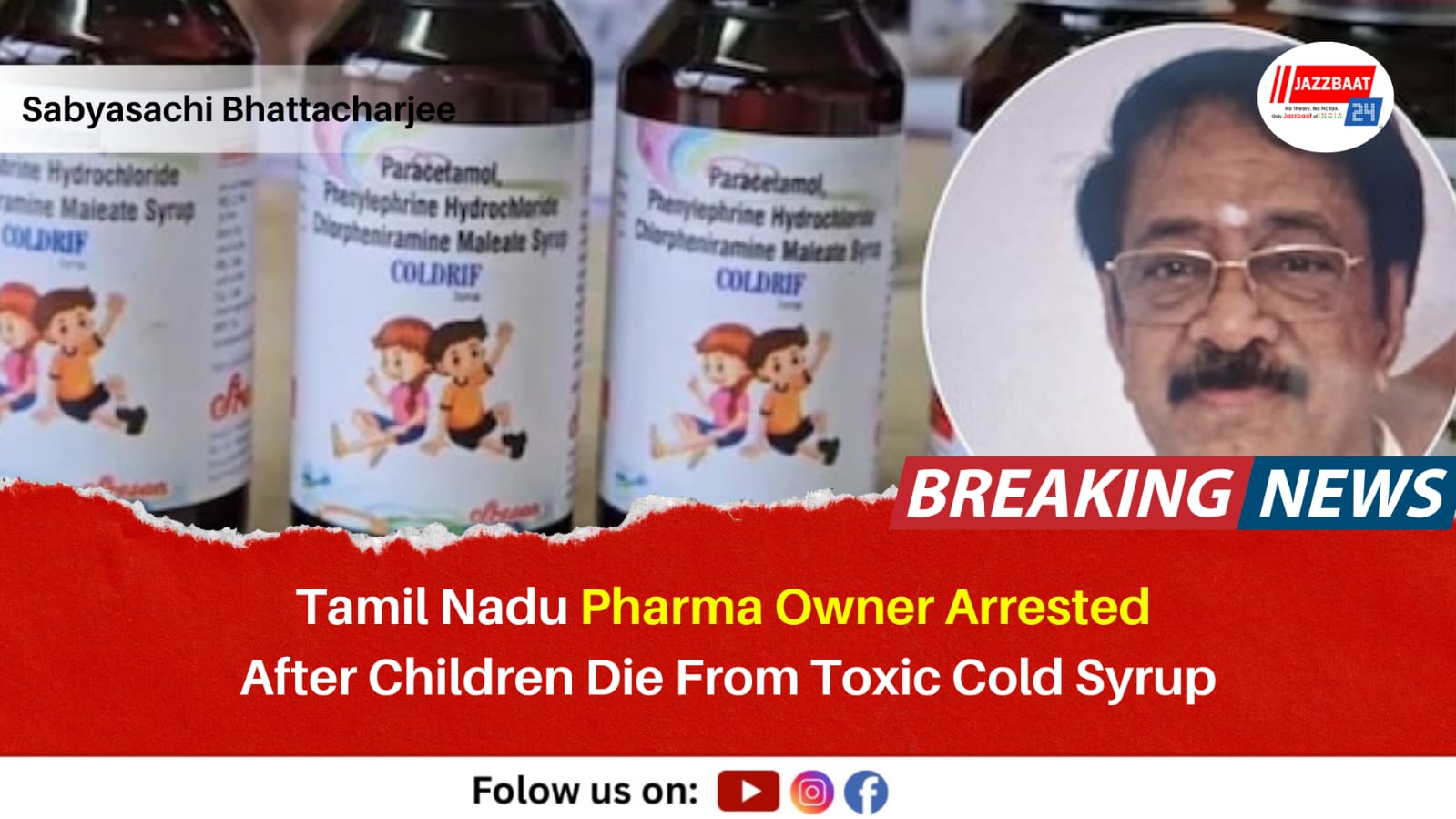
The owner of a pharmaceutical company in Tamil Nadu, S. Ranganathan, has been arrested by Madhya Pradesh Police following a tragic incident in which at least 19 children reportedly died after consuming a cough and cold syrup named “Coldrif.” The syrup was manufactured by Ranganathan’s company, Sresan Pharma, which has now come under intense scrutiny.
Investigations revealed that the syrup contained Diethylene Glycol (DEG) a highly toxic chemical normally used in industrial solvents. Laboratory tests confirmed the presence of this poisonous compound in significant amounts, which led to fatal kidney failure among the affected children.
According to police reports, the deceased children had been given the Coldrif syrup for common cold and cough. Soon after consumption, they began showing severe symptoms such as vomiting, abdominal pain, and urinary complications. Despite receiving medical treatment, none of the children could be saved.
Following these deaths, health authorities in Madhya Pradesh and Rajasthan launched joint investigations and traced the supply chain back to the Tamil Nadu-based manufacturer. The Tamil Nadu government immediately imposed a complete ban on the sale and distribution of Coldrif syrup and ordered all existing stocks to be seized. The manufacturing unit was also shut down.
Ranganathan, who was arrested from Chennai, is currently being interrogated in Madhya Pradesh. Preliminary findings suggest that his company may have ignored essential safety protocols during production and sourced cheap, substandard raw materials to reduce costs a decision that proved fatal for many innocent lives.
Medical experts point out that the use of Diethylene Glycol in medicine is not new; similar incidents in India and abroad have previously led to mass casualties. They emphasize that this case exposes serious gaps in India’s drug quality control and regulatory mechanisms.
The tragedy has sparked outrage across the country. Families of the deceased children are demanding strict punishment for those responsible. Meanwhile, India’s Union Health Ministry has ordered a high-level probe and promised tougher regulations to prevent the recurrence of such disasters.
Experts warn that the incident could damage India’s reputation as a global supplier of affordable medicines. What was meant to cure ended up killing a grim reminder that public health safety must never be compromised for profit.
This heartbreaking case not only exposes administrative lapses but also serves as a wake up call for India’s pharmaceutical industry to prioritize human lives over commercial gain.